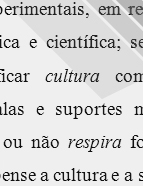

................................
Under the philosophical guidance of Vieira de Almeida in Lisbon, who did not explore the empirical path of cultural study but rather the theory of history, and the essayistic influence of Sérgio, historiographical research was propelled by a remarkable generation that pioneered the study of Portuguese culture. Vitorino Magalhães Godinho (1918-2011), who ventured into social and economic history, left behind essays and leads for new perspectives (demography and cultural creation, comparativism, history of historiography) that were highly useful to the historiography of culture, especially by addressing sociology that appeared to be obstructed. António José Saraiva (1917-1993) made the transition to cultural history from literature and humanistic studies (F. Figueiredo, Hernâni Cidade, R. Lapa, even banished): closely related to Marxian theories, increasingly challenged due to Marx's negative view of ideological instances and the economic base posited by dialectical materialism, in the preface to Para a História da Cultura em Portugal [Towards a History of Culture in Portugal](2 vols., 1946-1961), in the eclipse of freedom, he courageously denounces the absence of fundamental cultural conditions for the study of the history of culture and the university's abandonment of its formative, critical, and enlightening munus in studying a culture that has experienced a series of "discontinuous eruptions" since the 16th century without an "internal guiding line": "the university is destined to be surpassed by events. Today it is already a small island resisting the new order of things and the new order of culture for which it is unprepared" as while in Portugal, culture is "denied," and its Faculties of Arts are " fish nurseries," whose fate will be "death in the open air." This problem is not dissociated in the extensive bibliography (e.g., História da Cultura em Portugal [History of Culture in Portugal]3 vols., 1950-62; Herculano e o Liberalismo em Portugal [Herculano and Liberalism in Portugal]1949; A Tertúlia Ocidental [Western Discussion Group] 1995, a thorough revision of his own theories from the 1940s to 1960s) where the best analytical position is found in Correspondência [Correspondence](2004) by and to Óscar Lopes.
